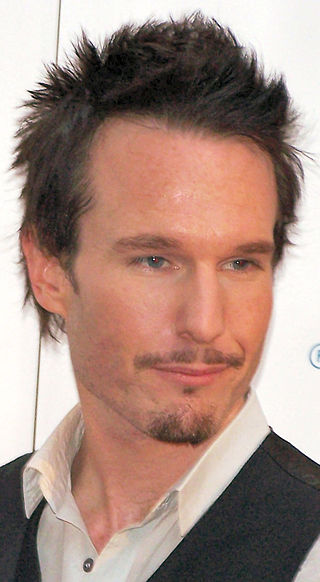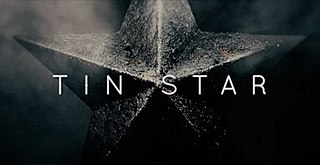
Alberta is one of the thirteen provinces and territories of Canada. It is part of Western Canada and is one of the three prairie provinces. Alberta is bordered by British Columbia to the west, Saskatchewan to the east, the Northwest Territories (NWT) to the north, and the U.S. state of Montana to the south. It is one of the only two landlocked provinces in Canada. The eastern part of the province is occupied by the Great Plains, while the western part borders the Rocky Mountains. The province has a predominantly continental climate but experiences quick temperature changes due to air aridity. Seasonal temperature swings are less pronounced in western Alberta due to occasional Chinook winds.

Fort McMurray is an urban service area in the Regional Municipality of Wood Buffalo in Alberta, Canada. It is located in northeast Alberta, in the middle of the Athabasca oil sands, surrounded by boreal forest. It has played a significant role in the development of the national petroleum industry. The 2016 Fort McMurray wildfire led to the evacuation of its residents and caused widespread damage.

The Athabasca oil sands, also known as the Athabasca tar sands, are large deposits of bitumen or extremely heavy crude oil that constitute unconventional resources, located in northeastern Alberta, Canada – roughly centred on the boomtown of Fort McMurray. These oil sands, hosted primarily in the McMurray Formation, consist of a mixture of crude bitumen, silica sand, clay minerals, and water. The Athabasca deposit is the largest known reservoir of crude bitumen in the world and the largest of three major oil sands deposits in Alberta, along with the nearby Peace River and Cold Lake deposits.

Lake Athabasca is in the north-west corner of Saskatchewan and the north-east corner of Alberta between 58° and 60° N in Canada. The lake is 26% in Alberta and 74% in Saskatchewan.

Whitecourt is a town in Northern Alberta, Canada that is surrounded by Woodlands County. It is approximately 177 km (110 mi) northwest of Edmonton and 279 km (173 mi) southeast of Grande Prairie at the junction of Highway 43 and Highway 32. It has an elevation of 690 m (2,260 ft).

David Winning is a Canadian-American film and television director, screenwriter, producer, editor, and occasional actor. Although Winning has worked in numerous film and TV genres, his name is most commonly associated with science fiction, thrillers and drama.

Rupert William Penry-Jones is a British actor, known for his performances as Adam Carter in Spooks, Clive Reader in Silk, DI Joseph Chandler in Whitechapel, and Mr Quinlan in the American horror series The Strain.

Alberta Provincial Highway No. 63, commonly referred to as Highway 63, is a 434-kilometre (270 mi) highway in northern Alberta, Canada that connects the Athabasca oil sands and Fort McMurray to Edmonton via Highway 28. It begins as a two-lane road near the hamlet of Radway where it splits from Highway 28, running north through aspen parkland and farmland of north central Alberta. North of Boyle, it curves east to pass through the hamlet of Grassland and becomes divided west of Atmore where it again turns north, this time through heavy boreal forest and muskeg, particularly beyond Wandering River. Traffic levels significantly increase as Highway 63 bends through Fort McMurray, crossing the Athabasca River before connecting the city to the Syncrude and Suncor Energy plants further north. It ends approximately 16 km (10 mi) beyond a second crossing of the Athabasca River northeast of Fort McKay.

The Fort McKay First Nation (FMFN) is a First Nations government in northeast Alberta comprising five Indian reserves – Fort McKay 174, Fort McKay 174C, Fort McKay 174D, Namur Lake 174B and Namur River 174A. The FMFN, signed to Treaty 8, is affiliated with the Athabasca Tribal Council and its members are of Cree, Metis and Dene heritage. The FMFN's traditional lands include portions of the Athabasca oil sands.

Michael Eklund is a Canadian television and film actor who is known for playing the role of the villain or antihero. His characters are often described as being "creepy".

Calgary is a city in the Canadian province of Alberta. It is the largest city in Alberta and the largest metro area within the three Prairie Provinces region. As of 2021, the city proper had a population of 1,306,784 and a metropolitan population of 1,481,806, making it the third-largest city and fifth-largest metropolitan area in Canada.

Oil sands tailings ponds are engineered dam and dyke systems used to capture oil sand tailings. Oil sand tailings contain a mixture of salts, suspended solids and other dissolvable chemical compounds such as acids, benzene, hydrocarbons residual bitumen, fine silts and water. Large volumes of tailings are a byproduct of bitumen extraction from the oil sands and managing these tailings is one of the most difficult environmental challenges facing the oil sands industry. An October 2021 Alberta Energy Regulator (AER) report said that in 2020 the tailings ponds increased by another 90 million cubic meters and contained 1.36 billion cubic metres of fluids.

Burn Your Maps is a 2016 American comedy-drama film written and directed by Jordan Roberts, based on the short story of the same name by Robyn Joy Leff. The film stars Vera Farmiga, Jacob Tremblay, Suraj Sharma, Ramón Rodríguez, Virginia Madsen, and Marton Csokas.
Levi Meaden is a Canadian actor.

Tin Star is a British television crime drama created by Rowan Joffé. The series focuses on Jim Worth, a former London Metropolitan Police Service detective who becomes chief of police of a Canadian town in the Rocky Mountains. It stars Tim Roth, Genevieve O'Reilly, Abigail Lawrie, Oliver Coopersmith, Ian Hart and Christina Hendricks.

Shaun Johnston is a Canadian movie and theatre actor best known for his role as Jack Bartlett on the CBC drama Heartland, which debuted in October 2007. He co-founded the Shadow Theatre in Edmonton and made his first professional forays in Alberta's thriving theatre scene.

Mutant World is a 2014 Canadian-American neo-sci-fi western horror television film directed by David Winning and written by Matt Campagna, produced by Nomadic Pictures on behalf of SyFy. The film follows the adventures of a group of doomsday preppers who emerge from an elaborate bunker a decade after a meteor wipes out civilization, finding the world overrun by mutants. Shot in Alberta, the film stars Holly Deveaux as the leader of the preppers exploring their new world, Ashanti as a mysterious stranger who shadows them, and Kim Coates as the original leader who saved the handful of people ten years earlier.
The Canadian province of Alberta faces a number of environmental issues related to natural resource extraction—including oil and gas industry with its oil sands—endangered species, melting glaciers in banff, floods and droughts, wildfires, and global climate change. While the oil and gas industries generates substantial economic wealth, the Athabasca oil sands, which are situated almost entirely in Alberta, are the "fourth most carbon intensive on the planet behind Algeria, Venezuela and Cameroon" according to an August 8, 2018 article in the American Association for the Advancement of Science's journal Science. This article details some of the environmental issues including past ecological disasters in Alberta and describes some of the efforts at the municipal, provincial and federal level to mitigate the risks and impacts.
Fortunate Son is a Canadian espionage drama television series, which premiered January 8, 2020 on CBC Television. The show is loosely based on the experiences of Mary Cox, the mother of co-executive producer Tom Cox, who helped American draft dodgers cross the border into Canada during the Vietnam War.
SEVEN24 Films is a Canadian television production company based in Calgary, Alberta, Canada. Founded in 1989, SEVEN24 have produced and co-produced a number of television series, TV movies as well as feature films.
















